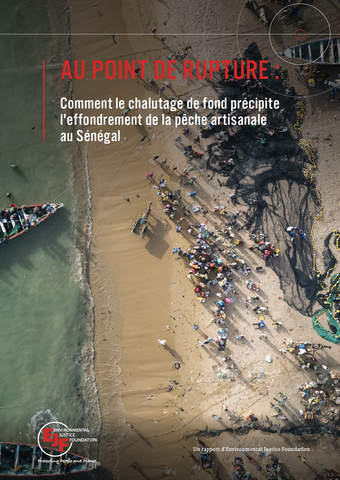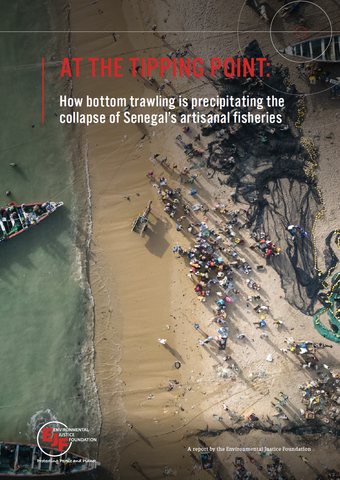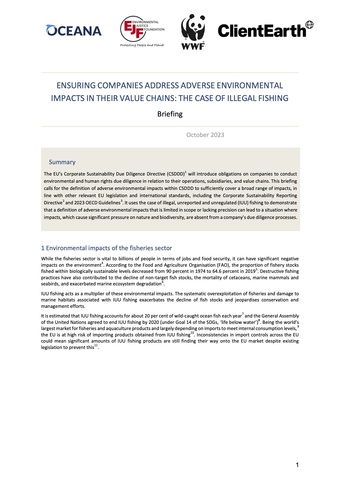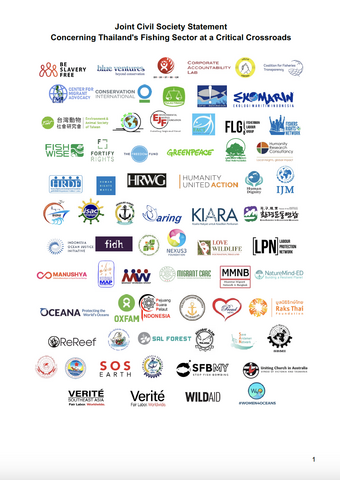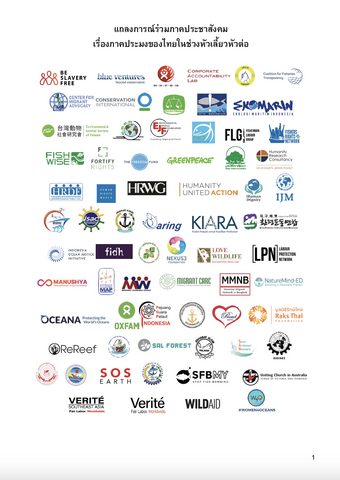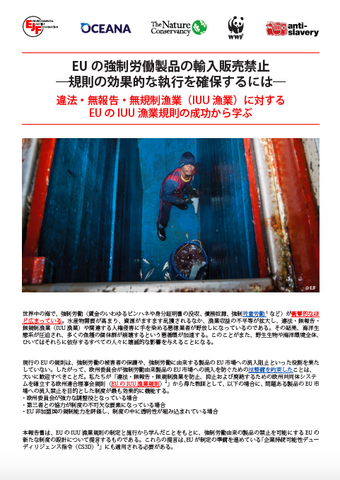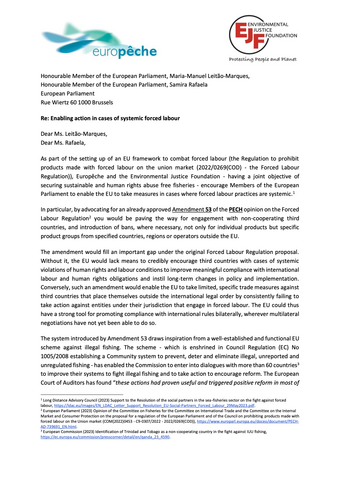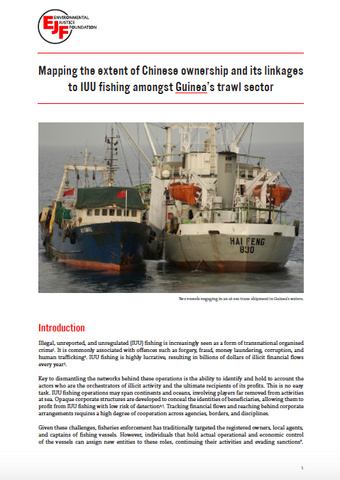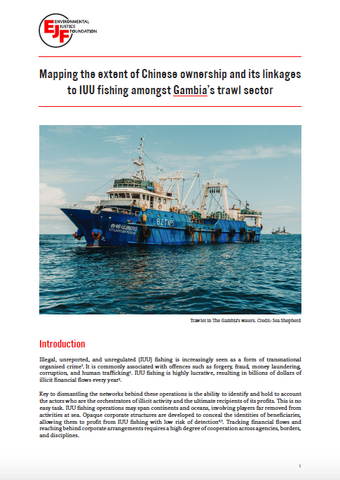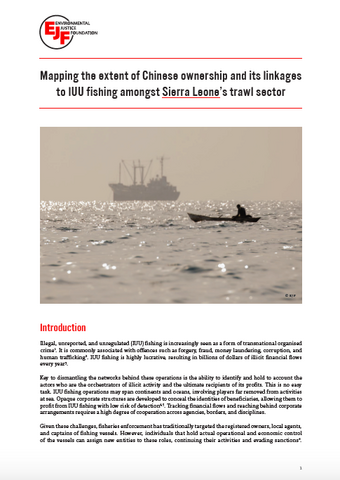Policy brief : The legal case for an effective GFCM compliance mechanism: The legal analysis by Professor Tullio Scovazzi and Professor Simone Vezzani of the GFCM’s legal framework, applicable international law, and existing compliance regimes of other Regional Fisheries Management Organisations (RFMOs) indicates that the reasons for this gap are of a political, not legal, nature.
At the tipping point: how bottom trawling is precipitating the collapse of Senegal’s artisanal fisheries: Artisanal fishing communities are the beating heart of Senegal’s fisheries sector, yet they are under threat. This report documents the environmental and socio-economic impacts of bottom trawling in Senegal.
Briefing: Schädliche Umweltauswirkungen im EU-Lieferkettengesetz – Fallbeispiel: IUU-Fischerei: Dieses Briefing zeigt anhand des Beispiels der illegalen, unregulierten und nicht gemeldeten (IUU-)Fischerei, dass eine weit gefasste Definition schädlicher Umweltauswirkungen im EU-Lieferkettengesetz dazu beitragen kann, besonders schädliche Auswirkungen der Fischerei auf die Umwelt zu verhindern und die Nachhaltigkeit in diesem Sektor zu fördern.
Joint Civil Society Statement Concerning Thailand's Fishing Sector at a Critical Crossroads: The Royal Thai Government’s progress to date in achieving a sustainable, legal, and ethical Thai fishing sector is commendable. However, rolling back reforms now would pose risks to Thailand and its fishing industry, especially when the global community is moving toward greater transparency and accountability in the seafood industry.
แถลงการณ ์ ร่วมภาคประชาสงัคม เรื7องภาคประมงของไทยในช่วงหวัเลีAยวหวัต่อ: ความก้าวหน้าของรัฐบาลไทยในการบรรลุภาคประมงไทยที่ยั่งยืน ถูกกฎหมาย และมีจริยธรรม เป็นสิ่งที่น่ายกย่อง อย่างไรก็ตาม การปฏิรูปถอยหลังในช่วงหัวเลี้ยวหัวต่อที่สำคัญนี้อาจก่อให้เกิดความเสี่ยงร้ายแรงต่อประเทศไทยและอุตสาหกรรมประมง โดยเฉพาะอย่างยิ่งเมื่อประชาคมโลกกำลังมุ่งสู่ความโปร่งใสและความรับผิดชอบในอุตสาหกรรมอาหารทะเลมากขึ้น
Enabling action in cases of systemic forced labour: As part of the setting up of an EU framework to combat forced labour, Europêche and the Environmental Justice Foundation - having a joint objective of securing sustainable and human rights abuse free fisheries - encourage Members of the European Parliament to enable the EU to take measures in cases where forced labour practices are systemic.
Mapping the extent of Chinese ownership and its linkages in Guinea's trawl sector: This briefing provides an overview of the fleet of Chinese-flagged or owned fishing vessels operating in Guinea. It explores the prevalence of Chinese-owned trawlers and supporting fleets in the country’s Exclusive Economic Zone (EEZ) and the extent to which these vessels, and/or their owners, have a history of IUU fishing.
Mapping the extent of Chinese ownership and its linkages in The Gambia's trawl sector: This briefing provides an overview of the fleet of Chinese-flagged or owned fishing vessels operating in The Gambia. It explores the prevalence of Chinese-owned trawlers and supporting fleets in the country’s Exclusive Economic Zone (EEZ) and the extent to which these vessels, and/or their owners, have a history of IUU fishing.
Mapping the extent of Chinese ownership and its linkages in Sierra Leone's trawl sector: This briefing provides an overview of the fleet of Chinese-flagged or owned fishing vessels operating in Sierra Leone. It explores the prevalence of Chinese-owned trawlers and supporting fleets in the country’s Exclusive Economic Zone (EEZ) and the extent to which these vessels, and/or their owners, have a history of IUU fishing.


